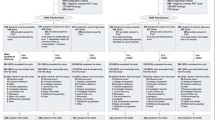Abstract
Alzheimer’s disease is the most common form of dementia which is estimated to impact 350,000 people over 65 years of age in Canada. The lack of effective treatment and the growing number of people who are expected to be diagnosed with Alzheimer’s disease in the near future are compelling reasons why continued research is in this area is necessary. With additional research, there needs to be greater recognition of the complexity of seeking ongoing informed consent from those with Alzheimer’s disease. This complexity is because the impairment of memory and cognitive ability does not diminish in a linear manner, but rather fluctuates between periods of impairment and relatively normal cognitive lucidness. There is limited discussion in the guidelines of those progressing from early stages of Alzheimer’s disease who have intermittent cognitive function. Guidelines to research and Research Ethics Boards require further development to facilitate researcher including those with Alzheimer’s disease while protecting this growing pool of potential participants.
Similar content being viewed by others
References
Alzheimer’s Disease Education & Referral Centre. (2005). Alzheimer’s disease fact sheet. National Institute on Aging. Retrieved June 24, 2006, http://www.alzheimers.org.
Appelbaum, P.S., & Grisso, T. (2001). Macarthur competence assessment tool for clinical research. Professional Resource Press.
Brovo, G., Paquet, M., & Dubois, M. (2006). Knowledge of the legislation governing proxy consent to treatment and research. Journal of Medical Ethics, 29, 44–50. doi:10.1136/jme.29.1.44.
Canadian Medical Association. (2004). CMA policy: CMA code of ethics. Ottawa.
Faden, R. R., & Beauchamp, T. L. (1986). A history and theory of informed consent. NewYork: Oxford University Press.
Jalbert, J. J., Daiello, L. A., & Lapane, K. L. (2008). Dementia of the Alzheimer type. Epidemiologic Reviews, (July), 16.
Pierre, T., & Howard, F. (2003). Current treatment for alzheimer disease and future prospects. Alzheimer Disease, 14(4), 2105–2113.
Ryan, J. K., Brady, J. V., Cooke R. E., et al. (1979). The Belmont report: ethical principles and guidelines for the protection of human subjects of research. Department of Health, Education, and Welfare. National Commission for the Protection of Human Subjects of Biomedical and Behavioral Research. April 18.
The Dementia Network of Ottawa. (2004). Position paper of dementia education. Retrieved June 16, 2006. http://www.ucalgary.ca/dementianet/ppde.pdfd.
Author information
Authors and Affiliations
Corresponding author
Rights and permissions
About this article
Cite this article
Qureshi, A., Johri, A. Issues Involving Informed Consent for Research Participants with Alzheimer’s Disease. J Acad Ethics 6, 197–203 (2008). https://doi.org/10.1007/s10805-008-9066-8
Received:
Accepted:
Published:
Issue Date:
DOI: https://doi.org/10.1007/s10805-008-9066-8




